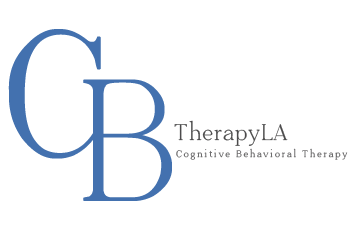Trauma
“Your trauma is not your fault, but healing is your responsibility.” – Unknown
Trauma is generally defined as a psychological and emotional response to an event or series of events that are distressing, harmful, or life-threatening. Traumatic experiences can overwhelm an individual’s ability to cope, leading to various emotional, psychological, and physiological reactions. These reactions can have lasting effects on a person’s mental health and well-being.
In the DSM-5, trauma is primarily associated with Post-Traumatic Stress Disorder (PTSD), and it’s defined as exposure to actual or threatened death, serious injury, or sexual violence in one (or more) of the following ways:
1. Directly experiencing the traumatic event.
2. Witnessing the traumatic event happening to others.
3. Learning that a close family member or friend experienced a traumatic event.
4. Experiencing repeated or extreme exposure to distressing details of a traumatic event (this could be through work, for example).
Additionally, the DSM-5 identifies several clusters of symptoms for PTSD, which generally include:
1. Intrusion Symptoms: Re-experiencing the traumatic event through flashbacks, nightmares, or distressing thoughts.
2. Avoidance Symptoms: Avoiding reminders of the traumatic event, such as places, people, or activities that might trigger distressing memories.
3. Negative Alterations in Cognition and Mood: This involves negative changes in thoughts and feelings that developed after the traumatic event. These changes might include distorted self-blame, negative beliefs about oneself or others, persistent negative emotions, feelings of detachment, and an inability to experience positive emotions.
4. Arousal and Reactivity Symptoms: This includes heightened arousal, such as difficulty sleeping, irritability, outbursts of anger, difficulty concentrating, and being easily startled.
Impact of Trauma:
Emotional Impact: It often leads to intense emotions such as fear, anxiety, anger, sadness, and guilt. These emotions can persist long after the traumatic event has occurred.
Cognitive Impact: It can affect an individual’s thought patterns, leading to negative beliefs about oneself, others, and the world. Individuals might experience intrusive thoughts, nightmares, and difficulty concentrating.
Physical Impact: It can manifest in physical symptoms like sleep disturbances, chronic pain, headaches, and even physical health issues due to the body’s stress response.
Hyperarousal and Hypervigilance: Many individuals who have experienced trauma remain on high alert, which can lead to hypervigilance, difficulty relaxing, and an exaggerated startle response.
Avoidance: Trauma survivors often try to avoid reminders of the traumatic event, which can lead to social withdrawal, avoidance of places or situations, and numbing of emotions.
Impact on Relationships: Trauma can strain relationships, as individuals might struggle with trust, emotional intimacy, and communication. The emotional aftermath of trauma can also lead to isolation.
Evidence-Based Treatments
Several evidence-based treatments are effective for addressing trauma and its impacts. The choice of treatment often depends on the type and severity of trauma, as well as the individual’s preferences. Some common evidence-based treatments include:
Trauma-Focused Cognitive-Behavioral Therapy (TF-CBT): TF-CBT is a structured therapy for children and adolescents who have experienced trauma. It combines cognitive-behavioral techniques with trauma-focused interventions to address emotional and cognitive aspects of trauma.
Prolonged Exposure Therapy (PE): PE involves gradually confronting traumatic memories and situations that have been avoided. This process helps individuals reduce avoidance behaviors and the distress associated with the traumatic memories.
Cognitive Processing Therapy (CPT): CPT focuses on challenging and modifying distorted beliefs and thought patterns related to the traumatic event. It helps individuals develop a more balanced and adaptive understanding of the trauma.
Mindfulness-Based Approaches: Mindfulness-based interventions, such as Mindfulness-Based Stress Reduction (MBSR) or Mindfulness-Based Cognitive Therapy (MBCT), can be helpful for managing it’s related symptoms and promoting emotional regulation.
it’s Important to note that trauma treatment is a highly individualized process, and the best approach may vary based on the individual’s needs, the nature of the trauma, and their preferences. It’s recommended to work with a qualified mental health professional who can guide the treatment process and tailor interventions to the specific needs of the person seeking help.
